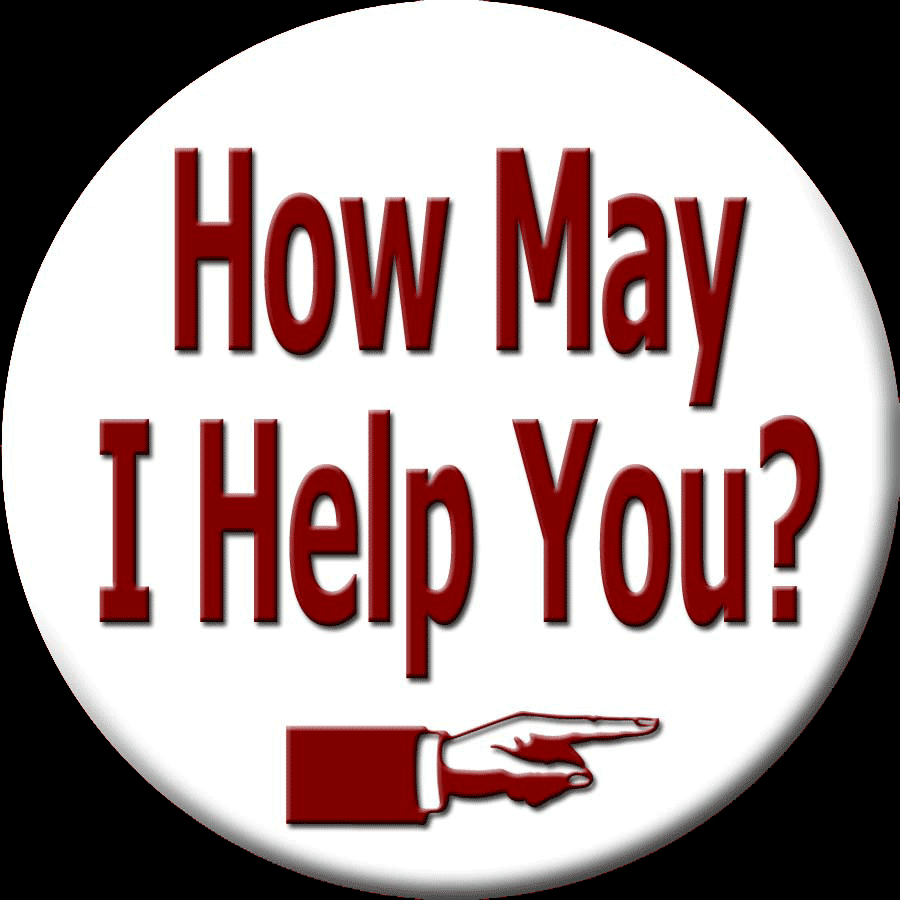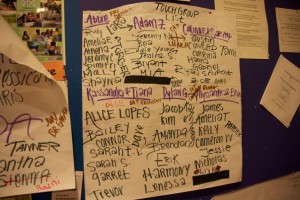Remember my notebook/journal from a few posts back? I was flipping through it this week trying to come up with a blog idea, and I realized I have a lot of notes on event planning. Three of the four full-time staff have been working in government for decades. They have also helped officials get elected–from local representatives to state secretary positions to U.S. representatives to Congress. I have very, very little event planning experience, so I feel like a new world is opened up to me every event-planning meeting we have. And of course I take notes.
So here’s my newbie advice for good event-planning, straight from my notebook!
For any event.
1. Sign-in sheets, sign-in sheets, sign-in sheets. I cannot stress the importance of sign-in sheets enough. They give you a concrete record of who was there plus basic information so that you can get in touch with them again. We ask for name, organization, address, phone number, and email. Besides sending follow-up thank you notes to everyone who attended, we keep the lists so that we can send out invitations for future events and relevant information. These are seriously so important.
2. If there’s going to be free time, take advantage of it. Even though we’re there as a group, we try to split ourselves up during free time at events (e.g. lunch or a coffee break) so that we can talk to more people. If someone is sitting alone, join them. Try to talk to constituents and local leaders as much as you can. Take the free time to get to know locals who are invested in the topics of the day, rather than the higher-up officials whose interests are already better protected.
3. Make sure someone is taking careful notes and transcribing the event. At the event our office put on earlier this summer, we had a camera rolling the entire time, someone taking general notes on what happened, and someone going around and taking down the names of every person in the crowd who made a comment (since they were already on our sign-in sheets it was pretty easy to match the person to the contact info). After the event, the other interns and I watched segments of the film and took careful notes on everything that was said, and highlighted consistencies across everyone’s comments. Having a recording will also help compensate for human error in note taking and make sure nothing gets missed.
For panel/town hall-type events, where you have officials at the front speaking and answering questions from the crowd:
1. Don’t put too many people up there. It may be tempting to get as many bodies on the stage as possible, but it’s unlikely that the crowd is going to remember all their names (and people might not be able to read their name placards), so keep the number as small as possible.
2. Defer to the locals. Even when you have very high-profile officials up there, make sure that local officials and constituents in the crowd get to make their voices heard. Town Hall-type panel events happen so that officials can hear what’s troubling people straight from their own mouths. Make sure the event is set up so that people can actually say what’s on their minds.
3. Make promises you can keep. If you can’t answer a question, tell the asker that you will get back to them within a reasonable amount of time. Give a number. “I don’t know the answer to that right now/I don’t have a solution for that issue right now/I don’t have resources with me today, but I/a staffer/a colleague in the crowd will take down your information and be sure to get that to you within two weeks/30 days/90 days/etc.” This will keep people from getting frustrated when you don’t know, and it will reassure them that you’re not trying to blow them off when you can’t answer a question.

Attitude is important.
For events planned by another group:
1. Troubleshoot. If another group is putting on an event in which you play an important role at the event itself, plan ahead in case something goes wrong. Besides helping the event run smoothly, this will help prevent you from looking bad or losing out because someone else messed up. We had a meeting this week about an upcoming event at which my boss is a speaker and a panelist, and most of what we did was plan to fill any gaps the planners might miss. We’re likely going to bring our own name placards in case they forget, and one of my coworkers mentioned that we might want to be ready to make coffee for people if they don’t have any there (I don’t know if it’s like this everywhere, but at least where I am, people drink coffee constantly).
We’re also bringing our own sign-in sheets in case they don’t have any. If they bring their own, one of my coworkers is charged with watching those sheets like a hawk to make sure we get copies before the end of the event. Did I mention sign-in sheets are important?
2. Get there early and stay late. The event coming up starts at 11. We’re going to have someone from our office there from 8 a.m. till the very end when almost everyone has left. They want to be there early and late to get a feel for the players in the room so that we can better understand the implicit implications of what goes on during the day, and so that my boss can be present at important conversations even when she’s not there or is up on stage. Being there early can also help with troubleshooting problems and give you time to address the problems you identify.
Putting on (and attending!) events is hard work, but, as with anything, going in with a plan makes everything a lot easier. Got any advice for me, seasoned event planners? I’d love to hear from you!


